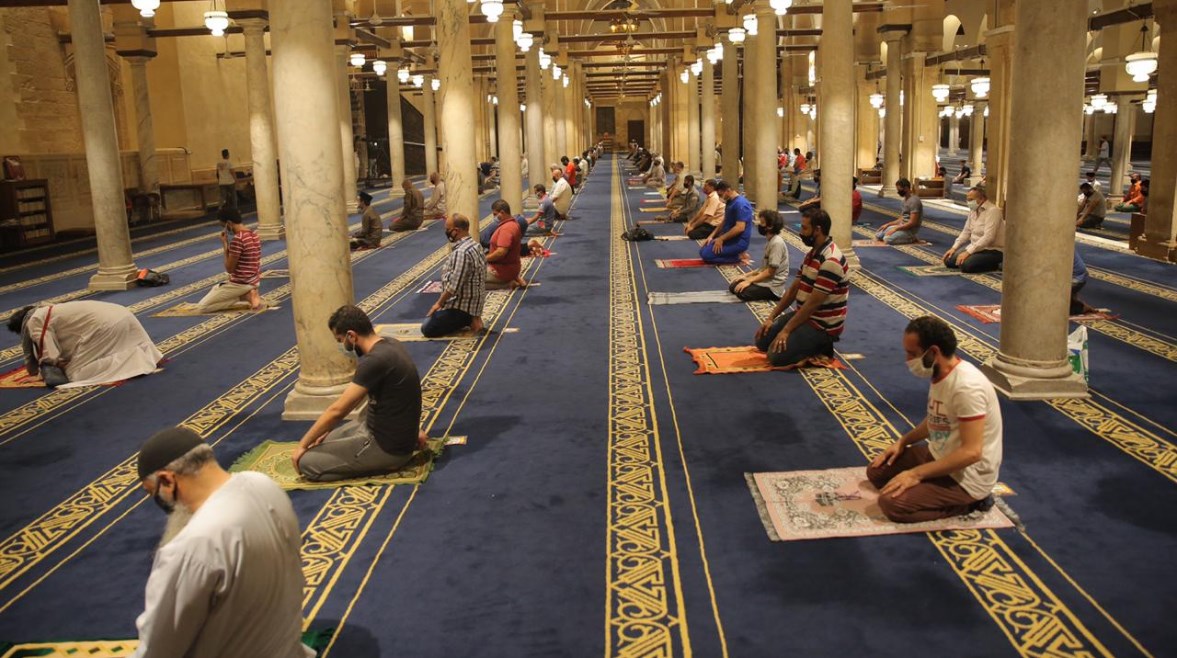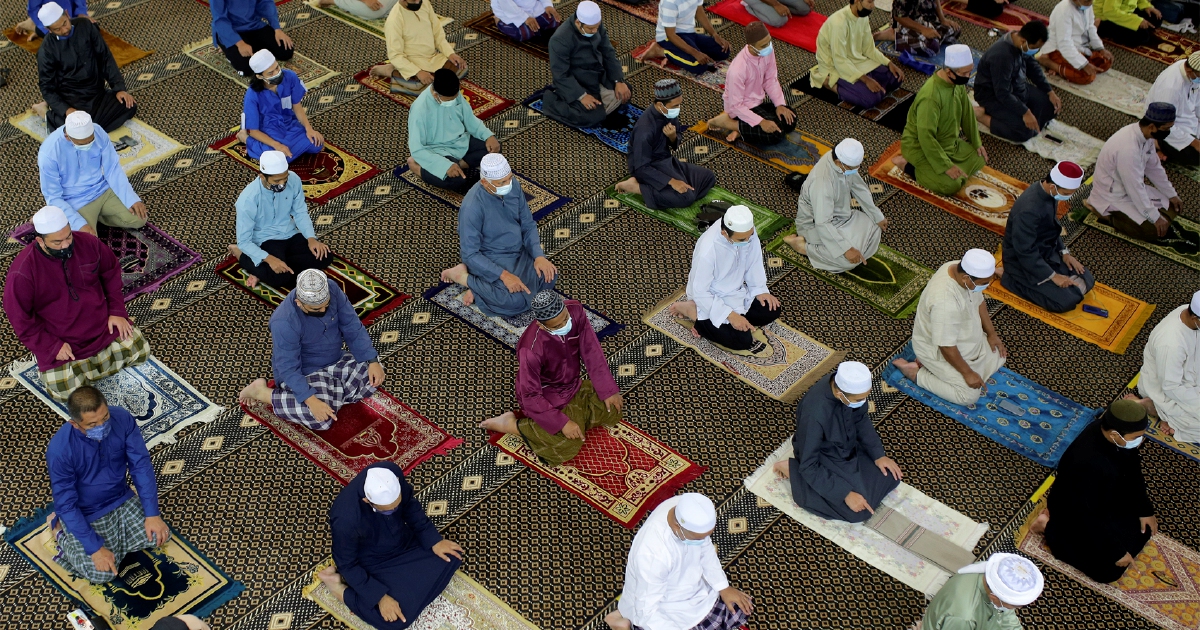Salah, also known as prayer, is an essential part of Islam. It is the second pillar of Islam, and Muslims are obligated to perform it five times a day. It is a form of worship that helps Muslims connect with Allah and maintain their faith. In this blog post, we will explore the meaning and historical significance of Salah and its role in connecting with Allah.
Meaning of Salah

Salah is an Arabic word that means to pray or to supplicate. It is a physical and spiritual act of worship that involves standing, bowing, prostrating, and sitting while reciting verses from the Quran. Salah is a daily ritual that Muslims perform to maintain their faith and strengthen their relationship with Allah. It is a way to show gratitude for Allah’s blessings, seek forgiveness for sins, and ask for guidance and protection.
The historical significance of Salah in Islam: Salah has a deep historical significance in Islam. It was first introduced by Prophet Muhammad (PBUH) during his miraculous night journey from Mecca to Jerusalem and then to the heavens. During this journey, Allah prescribed the five daily prayers as a way to connect with Him and seek His guidance. Salah became an essential practice among Muslims, and it has been passed down from generation to generation as a way to maintain the Islamic faith.
Role of Salah in connecting with Allah
Salah plays a crucial role in connecting Muslims with Allah. It is a form of worship that requires physical and mental focus, discipline, and devotion. Muslims perform Salah facing the direction of the Kaaba in Mecca, which is considered the holiest site in Islam. It is a way to remind Muslims of the unity of the ummah (Islamic community) and to reinforce their faith in Allah’s oneness.
Benefits of Salah

Physical benefits of Salah
Firstly, Salah provides physical benefits. The physical movements involved in Salah, such as standing, bowing and prostrating, promote physical activity, which can improve blood circulation and cardiovascular health. These movements can also stretch and tone muscles, especially in the legs, back, and arms, which can prevent muscle stiffness and joint pain.
Mental and emotional benefits of Salah
Secondly, Salah also has mental and emotional benefits. The repetitive nature of Salah can help Muslims focus their minds and reduce stress and anxiety. The act of performing Salah can also bring a sense of peace and tranquility to the mind and reduce feelings of restlessness or anger.
Spiritual benefits of Salah
Finally, Salah provides numerous spiritual benefits. The act of performing Salah is seen as a way of connecting with Allah and seeking His guidance and forgiveness. It allows Muslims to strengthen their faith, develop a sense of purpose, and cultivate a deeper sense of gratitude and mindfulness.
Salah as a Form of Worship
As one of the Five Pillars of Islam, Salah (prayer) is an essential component of the Islamic faith. It is a form of worship that Muslims perform five times a day, and it serves as a means of connecting with Allah (SWT) and seeking His guidance and blessings.
The obligation of Salah in Islam
Salah is a fundamental obligation in Islam, and it is mandatory for every Muslim who has reached the age of puberty and is mentally and physically capable. The Quran mentions Salah multiple times and emphasizes its importance. In Surah Al-Baqarah, verse 43, Allah (SWT) says, “And establish prayer and give zakah and bow with those who bow [in worship and obedience].” This verse highlights the significance of Salah as an act of worship and obedience to Allah (SWT).
Types of Salah
There are five obligatory Salah that Muslims perform every day. These are Fajr (dawn), Zuhr (midday), Asr (afternoon), Maghrib (sunset), and Isha (night). Each Salah has a specific time frame within which it must be performed. In addition to the obligatory Salah, Muslims may also perform voluntary Salah, such as the Taraweeh prayer during the month of Ramadan or the Tahajjud prayer in the last third of the night.
Importance of following the proper format and order of Salah
Performing Salah correctly is crucial because it is not just about physical movements but also a means of spiritual purification and strengthening one’s relationship with Allah (SWT). It is essential to follow the proper format and order of Salah, including performing the ablution (wudu) before Salah, standing in the correct position, reciting the prescribed verses and supplications, and observing the proper timing for each Salah. Doing so ensures that the Salah is performed in the manner prescribed by the Prophet Muhammad (PBUH) and, as a result, is accepted by Allah (SWT).
Preparation for Salah

- Niyyah (Intention)
Muslims must have the intention to perform Salah before beginning it. This intention can be made in one’s heart or silently recited.
- Takbiratul Ihram (Opening of Prayer)
The Salah begins with the Takbiratul Ihram, which is the declaration of the beginning of Salah. Muslims say “Allahu Akbar” while raising their hands to shoulder level.
- Standing (Qiyam)
During Qiyam, Muslims recite Surah Al-Fatiha, the first chapter of the Quran, and another chapter or verses from the Quran.
- Bowing (Ruku)
During Ruku, Muslims bow down and recite “Subhana Rabbiyal Adheem” (Glory be to my Lord, the Great) three times.
- Rising from Bowing (Qiyam)
After Ruku, Muslims stand straight while reciting “Sami Allahu liman hamidah” (Allah hears those who praise Him).
- Prostration (Sujud)
During Sujud, Muslims place their forehead, nose, hands, knees, and toes on the ground and recite “Subhana Rabbiyal A’la” (Glory be to my Lord, the Highest) three times.
- Sitting between Two Prostrations (Jalsa)
After the first Sujud, Muslims sit down briefly before performing the second Sujud.
- Second Prostration (Sujud)
Muslims perform the second Sujud in the same way as the first one.
- Tashahhud (Testimony of Faith)
After the second Sujud, Muslims recite the Tashahhud, which is a testimony of faith and the recognition of the oneness of Allah.
- Ending the Prayer (Taslim)
The Salah ends with the Salam, which involves turning the head to the right and saying “Assalamu alaikum wa rahmatullah” (Peace be upon you and the mercy of Allah) and then turning the head to the left and repeating the same phrase.
Common Mistakes To Avoid During Salah
There are common mistakes that Muslims may make during Salah, which can affect the validity and reward of their prayer. Here are some common mistakes to avoid during Salah:
- Inappropriate Dressing: Muslims must dress modestly and cover their bodies during Salah. Wearing revealing or inappropriate clothing can distract the individual and those around them, and may also invalidate the prayer.
- Neglecting Wudu: Muslims must perform ablution (Wudu) before Salah to purify themselves. Neglecting Wudu or performing it improperly can affect the validity of Salah.
- Incomplete or Incorrect Recitation: Muslims must recite the Quranic verses correctly and completely during Salah. Incomplete or incorrect recitation can affect the meaning and reward of Salah.
- Improper Posture: Muslims must perform the physical movements (Rakat) during Salah with proper posture and alignment. Neglecting the correct posture can affect the validity and reward of Salah.
- Rushing through Salah: Muslims must perform Salah with focus, humility, and concentration. Rushing through Salah can affect the sincerity and reward of Salah.
- Neglecting Congregational Prayer: Muslims must prioritize attending congregational prayers (Jamaat) in the mosque. Neglecting congregational prayers can affect the reward and blessing of Salah.
Given the importance and benefits of Salah in Islam, it is essential for Muslims to practice it regularly. Salah should not be viewed as a burden or a chore, but rather as a privilege and an opportunity to connect with Allah (SWT). Muslims should strive to establish a strong and consistent Salah routine, and make it a part of their daily lives.
To encourage regular Salah practice, Muslims can start by setting realistic goals for themselves, such as performing Salah on time, attending congregational prayers regularly, and reciting Quranic verses during Salah. Muslims can also seek support from their family and friends, and create a positive environment that promotes Salah.
Conclusion
In conclusion, Salah is an integral part of the Islamic faith, and its importance and benefits cannot be overemphasized. Muslims should make an effort to practice Salah regularly, and seek Allah’s (SWT) guidance and blessings through this act of worship. May Allah (SWT) enable us all to establish a strong and consistent Salah routine, and accept our prayers with His infinite mercy and grace.
Salah FAQs
Can Salah be performed anywhere?
Yes, Salah can be performed anywhere, as long as the place is clean and free from impurities.
What is the minimum age for performing Salah?
The minimum age for performing Salah is seven years old.

